Risa Rubin is a harpist who creates deeply personal music and art in Los Angeles. She’s been a friend of our publication for awhile now, so Carter was lucky enough to talk to her about her new album, I’M RELIVING THE END OVER AND OVER AND OVER AGAIN AND IT’S ONLY THE BEGINNING.
[soundcloud id=’528923169′ height=’false’ color=’#ff7700′]
Carter Moon: How does it feel to have a new album done?
Risa Rubin: Well, I haven’t done one in a while. It feels good that it’s finally out. I’m just putting it out there tomorrow online. So it feels relieving, I think, finally, to just rid myself of it and move on to something new.
CM: It’s been a couple years since you released an album. Have you been writing music the whole time?
RR: Yeah, I released my other album in 2016, but that one was also a situation where it was done for a long time before I put it out online. So for the last couple years, steadily, I’ve been writing music and recording this. And when this was done, still writing a lot of music. But they come in a different sort of iteration.
CM: Why is it that it takes so long from when you finish an album to when it actually gets out into the world?
RR: To be perfectly honest, the reason is that I wanted to record this one better than we did the last one, so it took a while to figure out how to do that and have the money to do that. So that was our process for a little. I recorded with this guy who has a home studio.
CM: I have friends who do similar home studio stuff.
RR: He’s funny because he’s had these big studios, but he’s our age, very young. But he was in between studios, so him and his brother who grew up in this mansion—I don’t know if I’m allowed to say this—this insane mansion in Sherman Oaks emptied out their childhood bedrooms and just filled them to the brim with shit. Hundreds of thousands of dollars of amps and equipment. They’re actually opening their new studio tomorrow, and having an event for it.
CM: I imagine pulling that whole process together yourself is a lot to figure out.
RR: Yeah, and figuring out how to pay for it.
CM: Yeah, yeah.
RR: So that took a while, but the main reason, I feel, that it takes so long is that I’ll be really, really waiting to get it done, and I’ll be so excited that it’s finally done, and I’ll be like, “Okay, today I’m going to send out a thousand emails,” and just see if anybody responds. And I did a lot of that, which I also did the time before. There were a few things that were close to being something, but they weren’t, and just a lot of no responses. And at a certain point it’s like, how long am I just going to keep emailing people, you know? So I stopped.
CM: And then, you just put it out there.
RR: Because at that point you’re like, this isn’t even that relevant to me anymore, because I made it a while ago.
CM: That’s really interesting. So your music feels intensely personal. I assume that it is, right? It’s all very much coming from yourself. You’re not writing for a character or something like that like other artists.
RR: No, I’m not. I think maybe I’m playing into a certain character version of myself. Maybe a more fucked up or highly emotional person. But it’s definitely me.
CM: I can imagine that that’s a thing. I feel like a different person six months after I do anything, so I can imagine the thoughts and feelings don’t resonate with you as they did when you were writing the songs originally. Especially when you have to do all of this work yourself of promoting your work and getting it out there. I can imagine that process sort of making your raw emotion of whatever you’ve made feel… almost irrelevant? I don’t know, I can imagine it dampening the emotion. Does putting in all that work dampen the emotion?
RR: That’s a good question.
CM: It becomes a product more than just art you can enjoy in itself.
RR: Totally. I think at that point, you’re so detached from what you’re trying to sell, that you’re just like, “What? Why did I even do this at all?” And then you have to go back and listen to the thing that you made and at least be like, “Oh, I did make something.” Now, at least I get why I’m trying.
CM: So how long have you been at this? How long have you been trying to make music this way?
RR: Five years.
CM: We’ve interviewed you in the past, and I think you talked about this then, but have you always used the harp so much in your music?
RR: No. I’ve been singing since I was seven, and I was writing songs for a long time, like, as a kid, but I didn’t play an instrument for a long time.
CM: You talked to us about that.
RR: So I’ve had the harp for about five years, but I didn’t put much effort or time into it other than the last couple of years.
CM: I think it gives your music a lot of unique power. There’s nothing quite like it that I’m familiar with, because I don’t listen to Joanna Newsom very much, which is the only harp player I have as a frame of reference. So I wonder if you get a lot of people not knowing how to interpret your music.
RR: Because of the harp?
CM: Yeah, or just the unique sound you have in general. I know that I can’t place it into any other kind of genre beyond folk music, I guess. So do you find it an advantage, where people are just amazed they’re hearing this kind of music, or do people not know what to make of it?
RR: Probably both. Right now, I don’t know if I feel like it’s an advantage, but when I perform, I think I get more excitement than other performers do.
CM: Than if you were playing an acoustic guitar or something like that.
RR: For sure, but in terms of trying to sell my music, I think it’s for sure working against me. And I can give you such an ironically crazy—because you brought up Joanna Newsom, this is just the perfect thing. The one thing that I did get close with—and this is also why I was waiting for a while. Someone sent my album to Drag City, the record label. She’s on it, and it’s a great record label. And they were like, “Great, we’re going to play it all around the office, and we’re going to see if this is it.” And I was very excited. And then they responded and were like, “We all agreed that this is just too similar to Joanna because of the harp, so we can’t do it.” And that sucked.
CM: That really does suck.
RR: Like, just because it has the same instrument?
CM: Right, and like I said, I have a passing awareness of Joanna Newsom’s music, but your singing voice is so distinctive, too. You have a lot going for you that I think would set you apart quite a bit. It also seems like Joanna Newsom is a generation removed, so you’d think that younger people would respond to this as being a wholly new thing, where they don’t have any frame of reference for hearing this kind of harp pop music. Would you say that’s a fair way to describe your music? It’s like, pop song structures played with a harp.
RR: Yeah, maybe.
CM: It’s not like the songs go on for 15 minutes or anything like that.
RR: Sure, sure, and hers do! Which is why I didn’t get the comparison.
CM: No kidding! That’s infuriating.
RR: Yeah, yeah.
CM: I don’t know, it’s one of these things that I’ve encountered through doing these interviews. A decent amount of fairly talented, original musicians who have these stories where it’s like, “Well, nobody found a place to slap me into yet, so nothing’s happened yet.” It’s really frustrating, because you’ll talk to people and be like, “You deserve to be playing big crowds. Your music is refreshing and exciting and new.” And those kind of perspectives need to get out there. But it’s difficult to know how that happens, as the music industry as a whole is in this intense flux that it’s been in, basically for our whole lives. Since the internet started and everything. So I did want to ask you a little bit about that, too. Your last album got featured on Bandcamp, and they were like, “Hey, this was a great album for this year.” At the end of 2016, right?
RR: Yeah.
CM: Do you find that having your music out there on Bandcamp is an advantage, and do you like that people can just find it at any point? Maybe it’s a little more accessible than when you’d have to get things into record stores and get people to dig through a bin and buy things.
RR: Yeah, I think it’s really cool that you can do that. I think that’s great. I did this the other day, actually. You can just put in your city and go genre by genre and find the weirdest shit ever. Just people alone in their room, and not a lot of time was taken.
CM: Or ornately produced.
RR: But it is cool that anyone can just upload a thing. But at the same time, I think, in a perfect world, you would have that, and you would also have your physical copies and records. But even now, I was thinking about how when people buy physical copies of music now, vinyl is really the only thing that you’d want to buy again, and that’s so weird.
CM: It is very weird. It’s big and it’s tangible, and it’s a decoration as much as it’s the music itself.
RR: Yeah, so when we were first going through the whole vinyl resurgence, at that point I feel like CDs were still kind of a thing. And now, CDs are so dead. I was thinking about if I were to ever make my own physical copies, I would have to make vinyl, weirdly.
CM: I know a decent amount of Bandcamp musicians who do cassettes, actually, too. Those get collected.
RR: I’ve done a lot of that, yeah.
CM: Some of the people who write for Merry-Go-Round love to collect the cassettes, and one of my friends makes intense noise music and black metal, and he puts that on cassettes and those do really well. It is weird that if you’re smart about how you produce the stuff for yourself, you can reach an audience to get physical copies. People like having a physical thing to hold, I think.
RR: Absolutely. I’m only glossing over cassettes because—
CM: They seem like a pain in the ass to deal with.
RR: Yeah, all the music I’ve released has been on cassette, and I don’t own a cassette player. Which is why I’ve been like, “Fuck cassettes.” Also, the record label that we’re gonna (?) talk about also released cassettes. I just need to get a goddamn cassette player.
CM: I guess that is the even more hip thing now that vinyl’s become so normal.
RR: They are cheap to make. That’s why I pay to make them, and that’s great.
CM: So you’ve started a label. Do you want to walk me through what that’s been like, and what that’s all about?
RR: I started it with a friend of mine whose experience with music is really similar to mine. We’d always see each other performing in the strangest situations for the last couple of years. Originally, we just wanted to put on events, which is something that we’ve done, but we realized we both knew so many really talented female musicians who were all in LA just doing their thing. But they don’t have a lot of support.
CM: They don’t have a space, it sounds like.
RR: Yeah, they don’t have a community. So we wanted to start this record label to release music by them. The first thing that we did, and this is all that we’ve done so far, is release a compilation tape of 16 artists in LA. They’re all women, and they’re all really good. And we had a big event for it that I felt really good about. We want to do more. We’re trying to figure out what our next release should be.
CM: But it’s a cool idea, because it seems to me that LA is a bizarre place because there’s so much of the official entertainment industry here. There’s a sense that carving a lane for yourself, making your own art is like, “Why would you bother with that when Sony is right here?” When all of the big labels are right here and you could be trying to hustle and get your stuff in front of somebody. Because it seems like, in other cities, there’s this bigger history of DIY musicians coming together and starting record labels and record projects.
RR: That’s such a good point, actually, that I hadn’t thought about as to why the coolest DIY labels weren’t in the biggest cities in the country.
CM: And I think a big part of it is because the official industry is here, and the corporate industry is here and everything. So I was really excited to see that you were putting together this label, because there’s always going to be a need in a city like LA for artists to promote themselves and come together. And there’s such potential for artists working together as a community, collectively, rather than as individuals, so you don’t need a label to find you and pick you up and stuff.
RR: Totally, and that’s been the weird thing about navigating this, is that I have the problem of getting so pumped up about something and being like, “This is the new life I lead.” Couple weeks later, I’m like—
CM: How do I follow through on this?
RR: Yeah, and I was having these moments where I was like, “I’m going to take us to the top,” and then I’m like, “Oh shit, this is a lot of fucking work.” I’m not a business woman, but I still care the most about my own music. But at the same time, I do think that this is really important, and I can empathize with people who are doing the same thing. And banding together feels like the most effective way. Also, every woman that we put on this was a solo artist. And I think there’s something about also not being in a band while doing this that’s also very isolating. Especially also as a woman, because this is the whole thing I’m going off of… I feel like the way men come to music is in more of a social way, where you’re playing with your friends and it’s a fun activity.
CM: It sometimes grows organically.
RR: Yes, into something that you find out later that it’s your thing, whereas all the female musicians I know, that’s so not the way they get into it.
CM: Does it start out as a more private thing?
RR: Totally, to me. Maybe I’m just projecting, because my process only involves me and a few of my friends. And I feel like that’s across the board, in general. There are those badass girls who are like, “I play in a band where everyone else is a dude, and I’ve been doing that since I was 12.” But there’s not that many.
CM: I saw a band exactly like that a little while back. They’re called the Gooms, and they were fucking awesome. Their lead guitarist was a girl, and she kicked fucking ass and was really fun.
RR: That’s awesome.
CM: And you didn’t see it very much, but you are seeing this resurgence in girl-fronted rock music right now. I think people are kind of getting over listening to traditional rock music right now, so I think the female solo artist thing is a thing people will be more receptive to than they have been, which is really cool. But you still need a community for the solo artists to come together.
RR: That is a good point. That makes me feel better about that, and it is true that rock music—hip hop is so much more popular than rock music at this point.
CM: It’s funny, because I’ve noticed after covering music for the past few years that it really has gotten to the point where writing about anything other than hip hop, it feels like you have to justify why you’re taking the time to write about it, and get a reader to take the time to listen to it and everything because hip hop is just so dominant right now. And I love rap, it’s a great genre, but it’s not all that’s out there. Have you found that the people that appreciate your music like it for being outside of what’s dominant right now?
RR: I think so, and that’s what I would hope. But it still feels very isolating, and I know there are those people. It feels fucked up to say, but it’s hard to—
CM: It’s hard to reach an audience, I would imagine. An audience of people who will come to your show to see you specifically.
I really like your lyrics and the way you put together your phrases, and I was curious how you go through the process of writing the raw lyrics. Is it words and phrases that form in your head? Your lyrics feel like you have a background in poetry, almost. Is that where it comes from, or is that just naturally how your brain works?
RR: Thank you! I definitely don’t have a background in poetry, but I wish that I did.
CM: You just have a great sense of meter and rhyme, to me. I’m always really struck by that. Musicians don’t worry as much about crafting their lyrics these days, but there’s intentionality to your lyrics.
RR: That’s really nice, because that’s something that I’ve been beating myself up a lot about and feeling like I’m not intentional enough. I thought that I wasn’t intentional at all, and recently, I’ve been trying to be more intentional.
CM: I think I noticed that a little more on this album. Your lyrics felt more precise.
RR: That’s a lot more important to me now, realizing that if I’m going to go through all this trouble in every aspect of my life to do this, I should really care about what I’m saying. I shouldn’t just be like “bleh.”
CM: Yeah, I get that, because I’m more of a writer, and there is something about having gotten older, like, I want to take the time more. I want to re-write and do drafts, and spend more time on the craft of things. Just things that as I’ve gotten older, I’ve gotten more insistent on, as opposed to when I was 18, 19, 20, and was just like, “I need to get all this out!” So I can relate to that.
RR: That’s really true.
CM: So the music video you sent me. Was it directed by your brother?
RR: [Laughs] My sister.
CM: Sorry, sorry. I was like “Last name, last name—”
RR: It is a boy’s name.
CM: No, no, I feel bad.
RR: [Laughs] No, no, my sister’s name is a boy’s name.
CM: It’s a really well-directed video, and it looked really nice. On the last album, you had the visual component in everything, and you clearly had a visual idea of what goes with your music. How does that come about? Do you just write the songs, and in the back of your head, you know where to go with it, or is it after you’ve made all the songs?
RR: For the other album, they were very intertwined. For this album, I think when I was writing it, I had all these ideas, and none of that stuff happened at all. That video was pretty much entirely my sister, actually, and had very little to do with my input. There are visuals that I had in mind for this, which is more that I’m trying to do this instillation of the album, which is this whole thing I can explain later that’s really involved. But that’s kind of the main thing that I’m trying to figure out. But in terms of the videos, my sister and her boyfriend, they’re both really talented directors. There was just a bunch of really talented people that I had access to do to stuff for free.
CM: That’s awesome.
RR: So they made them, and Taylor shot them, and did such a good job.
CM: It’s a funny thing, because no one uses music videos to sell albums anymore, but they can still be such a good complement to an album to complete it as a work of art and everything. I think that there’s opportunities now that you can shoot music videos for cheap, you can do cool things to expand on what you’re trying to do artistically.
RR: I know, yeah. I, yeah, I love that. I don’t know what I’m trying to say.
CM: That’s all good. I don’t know that I have any more questions at this point. This was a very nice interview. It went all over the place
RR: This was great.
CM: Yeah, any last plugs? Where do people get the album? What’s the best way?
RR: On Band-
CM: On Bandcamp. Absolutely, absolutely. And check out Sylvia?
RR: Yeah, Sylvia.
CM: And the record label, check out the compilation.
You can find Risa’s music on Bandcamp here, and you can find her label Sylvia here.
The songs used in this episode, in order, are:
“And Me Too!”
“Peaks and Valleys”
“Why Am I Not Getting Any Better?”


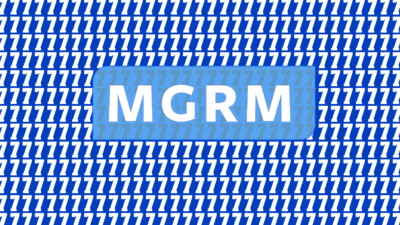

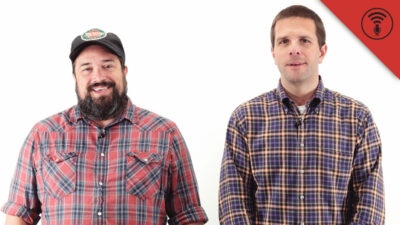
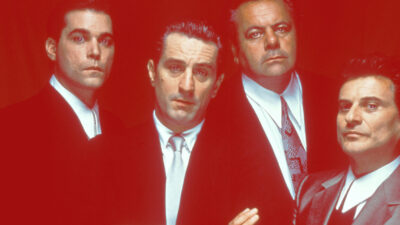
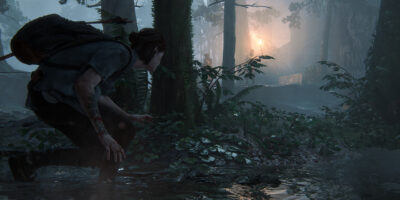
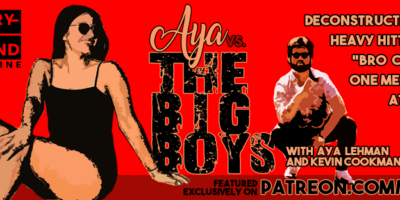
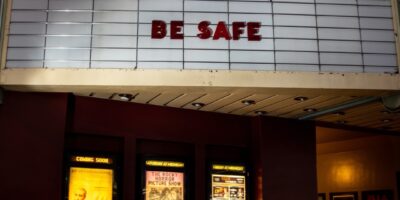
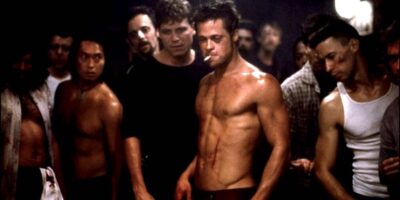
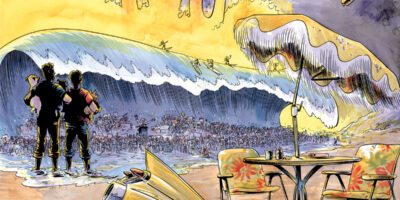
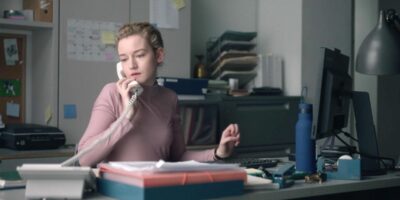

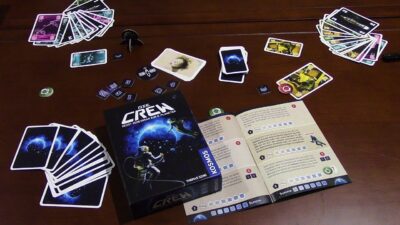
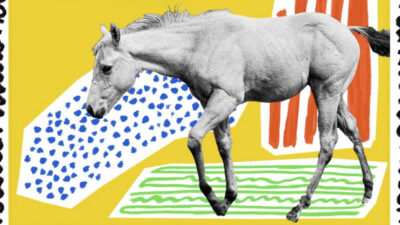
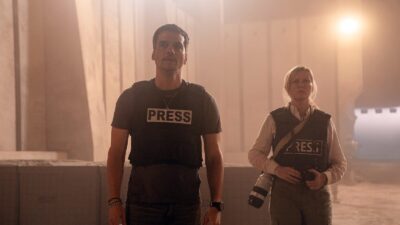
Comments